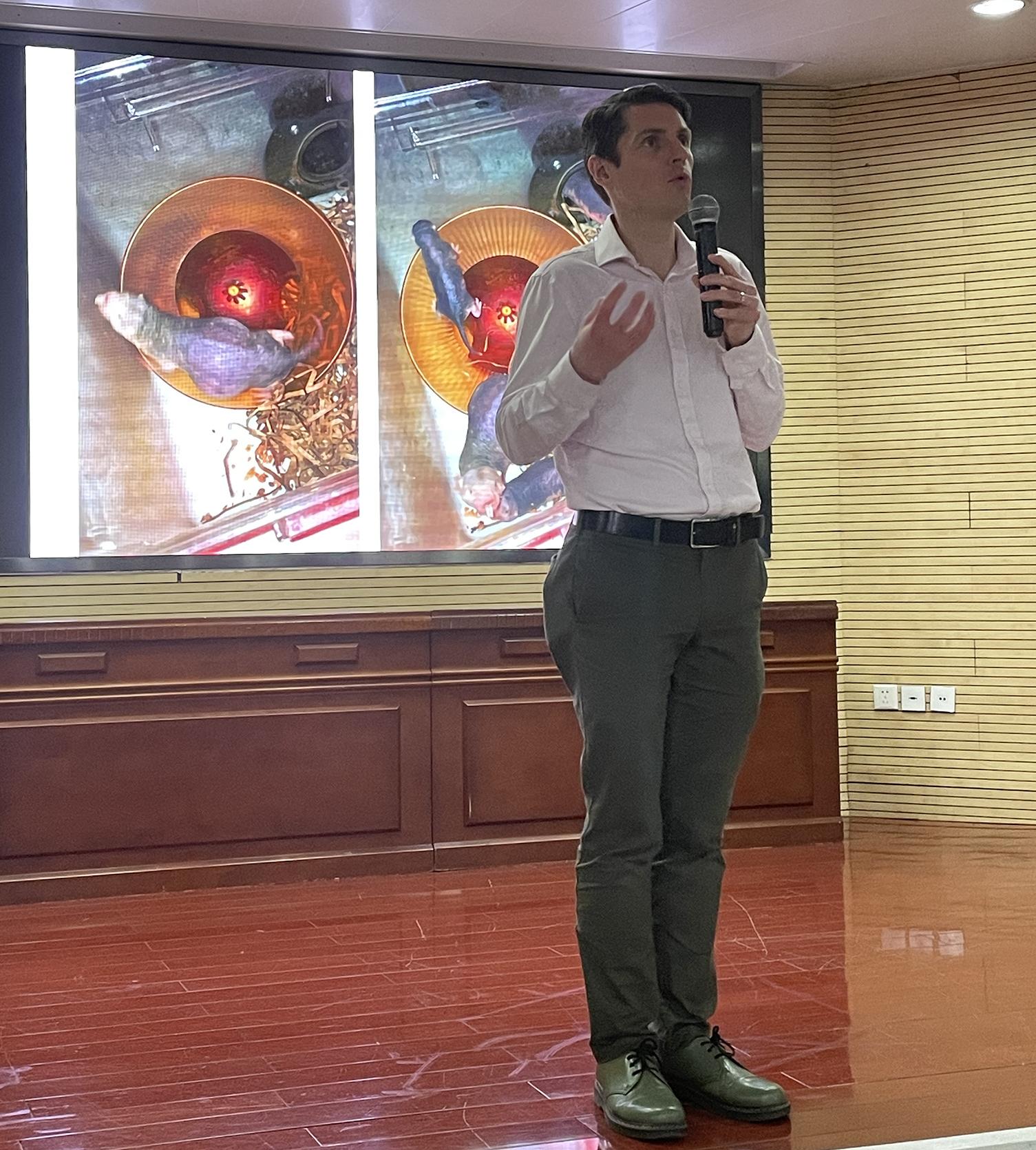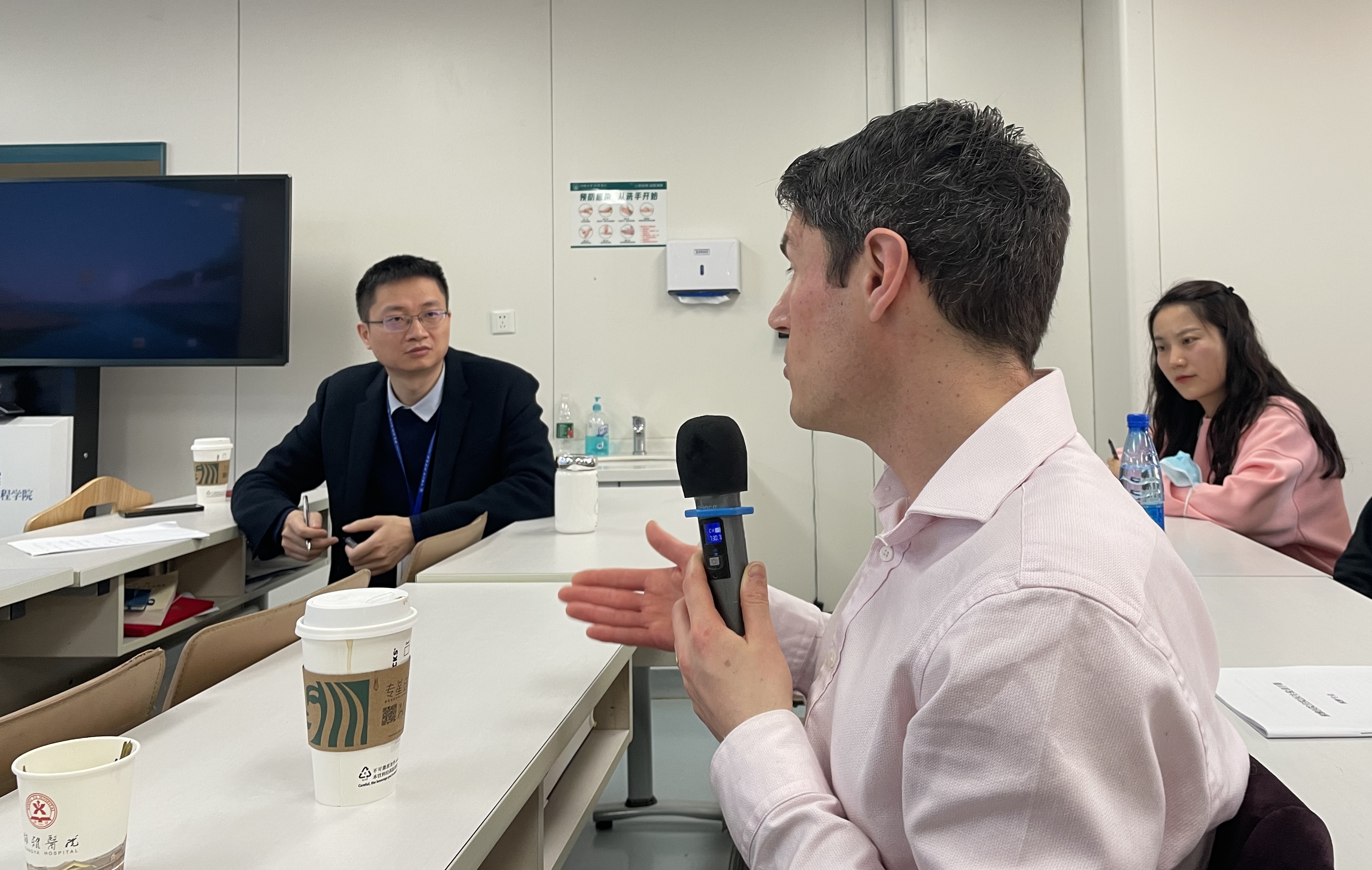
Submitted by D.P. Juan on Wed, 17/04/2024 - 10:56
From April 9-11th, Prof. Ewan St. John Smith of the Sensory Neurophysiology and Pain Lab visited the Xiangya Hospital – Central South University (CSU), China. For a week, hosted by Prof. Chang-Qing Gao of the Animal Laboratory Center, he gave a series of talks and had the opportunity to discuss collaborative opportunities.
The Xiangya Hospital at CSU is in Changsha, the capital of China’s Hunan province, and covers disciplines ranging from clinical medicine and molecular biology to rail transit and philosophy. The University is active in international collaboration, working closely with 200+ universities in over 30 countries and regions.
The Xiangya Hospital was founded in 1906 as The Yali Hospital by the Yale-China Association, making it one of the oldest hospitals in China. In 1914, the Hunan Yuqun Society and the Yale-China Association established the Xiangya Medical College, renaming the Yali Hospital to its current name today. The hospital hosts a vibrant and active academic community, with a notable focus on cutting-edge medical technology.
During his visit, Prof. Smith attended a series of talks by early career researchers in the Department of Anaesthesiology, learning about the different pain research being undertaken, a key focus being the interaction of pain and mental health conditions, such as anxiety and depression. A further visit to the National Clinical Research Center for Geriatric Disorders included a tour of new research laboratories for conducting behavioural analysis. In addition, Prof. Smith gave seminars on the ethics of using animals in research and the use of the naked mole-rat as a model organism, as well as being guided around the sights of Changsha.
This exchange seeks to lay the foundation for future research and collaboration between the Smith Group and researchers at Xiangya Hospital, key areas of potential interactions being behavioural analysis methods in different animal models, particularly regarding methodologies for assessing how spontaneous behaviours are altered in different pathologies, such as osteoarthritis.






